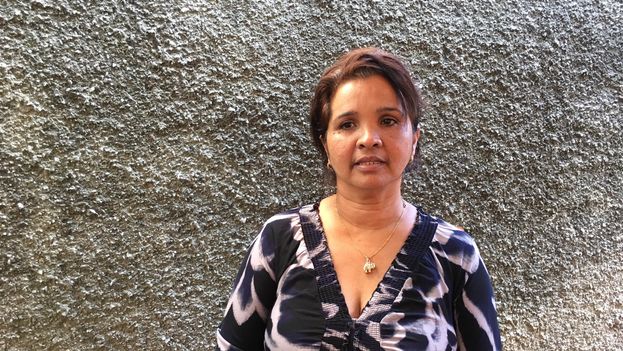
![]() 14ymedio, Havana, 10 May 2017 –The independent Cuban press has been especially harassed after the passage of Hurricane Matthew in the eastern part of the country. Several reporters were arrested while trying to cover the situation of the victims, reports the Association for Freedom of the Press (APLP) in its latest report.
14ymedio, Havana, 10 May 2017 –The independent Cuban press has been especially harassed after the passage of Hurricane Matthew in the eastern part of the country. Several reporters were arrested while trying to cover the situation of the victims, reports the Association for Freedom of the Press (APLP) in its latest report.
“The population of Baracoa became the epicenter of attacks against the press,” says the report, which highlights among the most affected journalists Diario de Cuba, El Estornudo and Journalism de Barrio.
The APLP’s Commission of Attention to Journalists and their Families documented 213 cases of the violation of human and professional rights against journalists during 2016. The report shows a peak of 43 attacks against reporters during the month of March, during President Barack Obama’s visit to the Island.
Attacks against the press included “arbitrary arrest, harassment, theft from their homes, threats of all kinds (including death), attempted blackmail, prison sentences, defamation, humiliation and confiscation of the tools of their profession,” it continues.
The independent organization details that “small groups of journalists have created independent media” that “operate under the risks” which include breaking the law
Despite this scenario, the independent organization details that “small groups of journalists have created independent media” that “operate under the risks” which include breaking the law. It believes that 2016 was a year “significant for the Cuban press” despite “the constant blockages of web pages” carried out by the government.
As an example of this negative climate, the report points to pressures on the journal Coexistence, which reached their peak in January 2017 with the arrest of economist Karina Gálvez, accused of tax evasion. The publisher “has not been able to return to her home by court order” and “insists that the crime has been fabricated.”
The APLP recommends that journalists be “committed to the ethics that define the international standards of journalism.” The “dissemination of their work among the inhabitants of the national territory” is also among the suggestions that appear in the report.
APLP’s report was published a few weeks after Freedom House placed Cuba among the ten worst countries in the world for freedom of the press, as detailed in its annual report.
